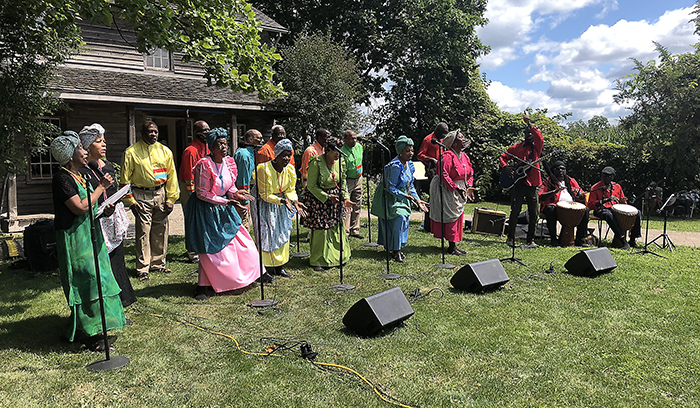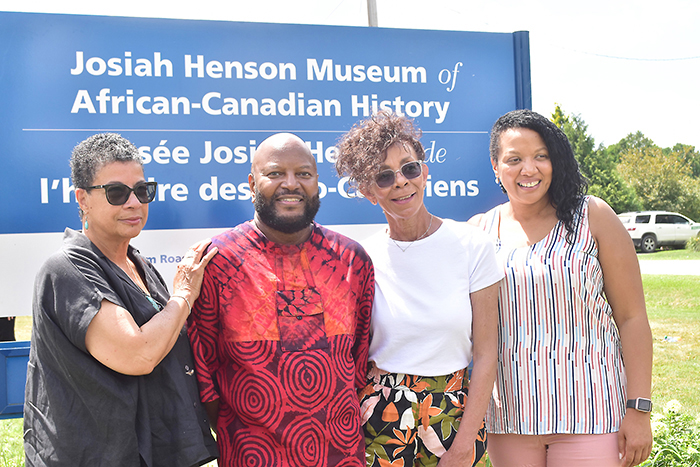
By Pam Wright
Local Journalism Initiative Reporter
Some 139 years after his death, the rich legacy of abolitionist Josiah Henson has been reclaimed.
It happened in Dresden Saturday when Uncle Tom’s Cabin Historic Site was officially renamed as the Josiah Henson Museum of African-Canadian History.
Ontario Heritage Trust CEO Beth Hanna said the new name is fitting and allows the renowned pastor, educator and Underground Railroad conductor to take his rightful place in history.
“Josiah Henson is not well known in Canadian history,” Hanna explained. “He should be.”
The name change has been a long time coming. Known in the Black community as a pejorative slur, the term “Uncle Tom” became a racist insult used in a derogatory way.
Originally taken from Harriet Beecher Stowe’s famous novel “Uncle Tom’s Cabin” – based on the real-life story of Josiah Henson – the term was corrupted by racist anti-Tom minstrel shows.
Henson penned his autobiography in 1849. It was titled “The Life of Josiah Henson, Formerly a Slave, Now an Inhabitant of Canada.”
Concepts from Henson’s book based on his real-life experiences were used by Beecher Stowe when she wrote Uncle Tom’s Cabin.
Stowe’s book was published in 1852. It went on to become an international best seller and helped fuel the American Civil War.
It also made Henson one of the most famous Canadians of his time.
Despite the fame, Henson was never comfortable with the term “Uncle Tom.”
When speaking in Scotland on a world tour, Henson told the crowd his name was not Uncle Tom and that he was Josiah Henson and “always would be.”
In 1858, Henson released another book called “Truth Stranger Than Fiction: Father Henson’s Story of His Own Life.”
Stephen Cook, long-time manager of the Dresden area site, called Henson a “remarkable leader who embodied bravery and perseverance.”
However, Cook said his real-life achievements were “overshadowed” by the fictional Uncle Tom’s Cabin.
“During his lifetime, Henson expressed a desire to reclaim his name and legacy,” Cook said.
“We are honoured to help make this a reality here in Ontario where he chose to build a new life.”
What’s more, Aug. 1 also marks the Emancipation Day Proclamation Act. On that date in 1834, slavery was abolished in the British Commonwealth, which included Canada.
Dignitaries and officials from across the region, as well as descendants of Henson, attended Saturday’s renaming ceremony.
The new online link for the Josiah Henson Museum of African-Canada History can be found at heritagetrust.on.ca/jhm.
The Ontario Heritage Trust will continue to operate the five-acre site on the outskirts of Dresden. It houses Henson’s final home, a pioneer church and an interpretive centre.







